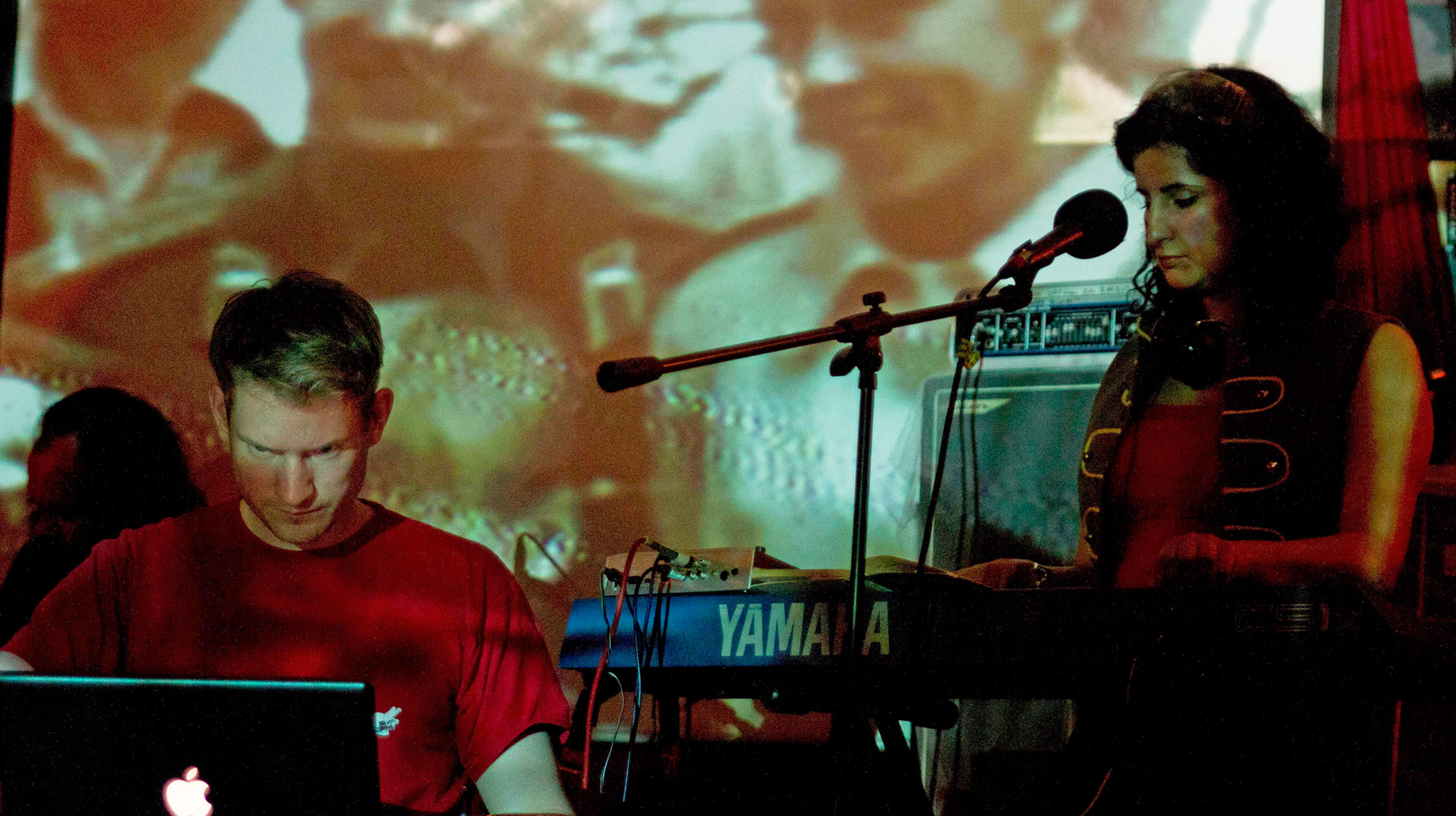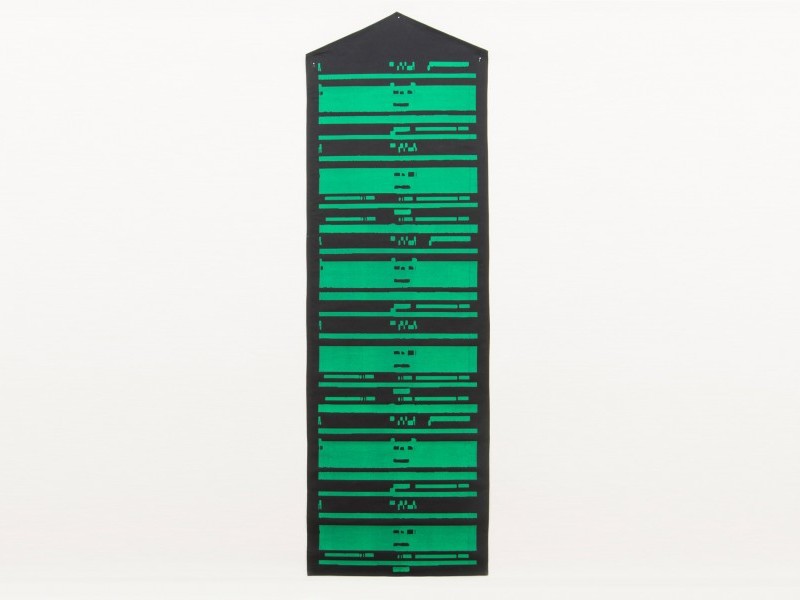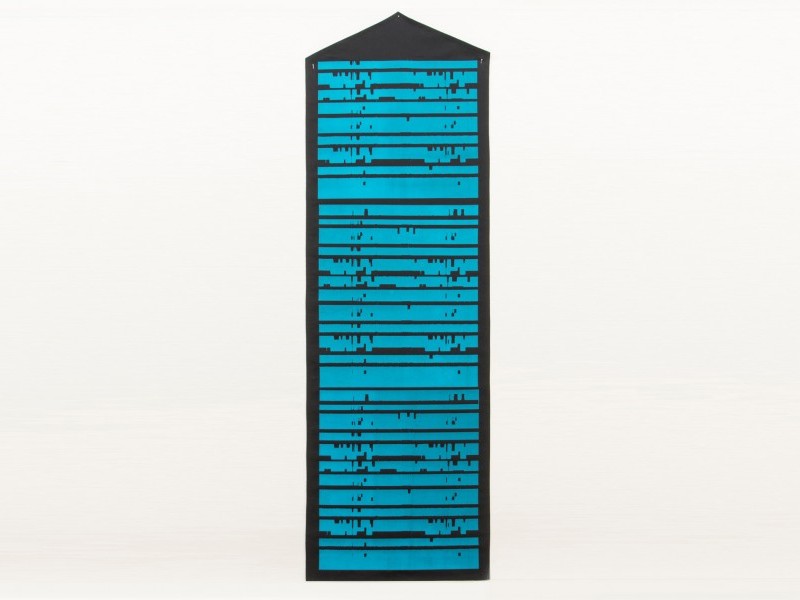

Introduction
Fari Bradley (Tehran) and Chris Weaver (London) are artists and composers focusing on sound and society. Pushing the physical and architectural potential of sound and acoustics, their practice encompasses experimental music, radio, performance, installation and sculpture. While visual culture dominates the global artistic landscape, the pair investigates listening as a means to establish and question new sets of social relations between subject and setting.
Bradley and Weaver's diverse backgrounds combine in an analytical interest in sound and the tools that it can provide for expanded cultural analysis. Collaborating since 2006, they have released experimental music records in the United Arab Emirates, composed and performed works together, and participated in thematic group shows internationally.
Both Bradley and Weaver lecture in sound and radio theory and practice in universities such as London College of Communications, Karachi University and New York University Abu Dhabi, and they have published long-form articles related to the subject during their time in the UAE. The artists also had major commissions from Art Dubai and Alserkal Avenue, residencies in Abu Dhabi and Dubai, and the release of an artist's edition record with The Vinyl Factory, UK, of which several tracks have had radio play on BBC national radio.
Summary and Concept
The two artists are working on producing a short series comprising of four 30-minute radio artworks, led by the narratives of local people recounting their memories and the changing practices of listening to music and radio in Sharjah. The radio artworks would be a mix of narrative, music and sound design akin to the montage style of documentary. Beginning with the British Forces Broadcasting (during the Trucial States era), the series would attempt to trace a narrative through the changing media landscape of the UAE, and Sharjah in particular. The series would be broadcast on Resonance 104.4FM in London.
Interview
1) What is your residency exploring?
We are looking at radio and listening habits in the UAE. From a historical perspective, we have researched early transmissions before the formation of the Emirates, to the role that radio played in regional and national consciousness leading up to the present day.
2) What compelled you to do research in Sharjah?
Sharjah Art Foundation has a fairly substantial library, which is where we began this project. It then progressed into oral histories which is very much part of our practice. Sharjah played a central role in the regional establishment of early transmission technologies and radio broadcasts, and we believe it will again in the future.
3) How has your time in the residency informed and inspired your practice?
Having the time and support to go into one of our areas of interest is invaluable. As sound artists we have been able to explore methods and means of recording personal histories in Arabic and English, and further our ideas on how sound is presented, either in a radio format, or in the gallery/museum setting.
4) What has been the most interesting discovery in your residency so far?
The very human stories, such as how in the 90s, South Asians around the gulf used to climb palm trees with transistor radios in hand, to pick up Radio Asia's Malayalam broadcasts on the AM signal more clearly.
5) What are the challenges that you have faced while working on your project?
Probably tracking down obscured and misspelt names from various scraps of information such as old archives, books or from other interviewees. It has been remarkable that we often track someone down only to find they have recently passed on. It has also been incredibly hot while we were here, which is great for knuckling down but not for travelling any distance on foot.
6) What are the aims and outcomes of your project?
One of the aims is to chart this history as it is largely undocumented in any cohesive way, yet it is so important. The sound pieces we are creating will not necessarily be linear however, or entirely historical documents. We are creating four sound works specifically for broadcast on arts radio stations, a medium in which we have consistently worked for over a decade. We want to make transmission works about transmission histories that cover the components that go into broadcasting so geography, technology, social norms and languages.
7) Would you return to Sharjah to pursue more projects?
Sharjah Biennial is the leading home-grown portal for non-commercial art to and from the region. Sharjah is also in the best position geographically to study intersections of North African and North, South and West Asian cultures. We would revisit, yes, we love its ocean-facing history.
Related

A Model Studio Series: Print 2.
The screen prints are long, totemic wall hangings taken from the output of an Atari 2600 games console, that had been manually, physically modified by the artists.

A Model Studio Series: Print 3.
The screen prints are long, totemic wall hangings taken from the output of an Atari 2600 games console, that had been manually, physically modified by the artists.
